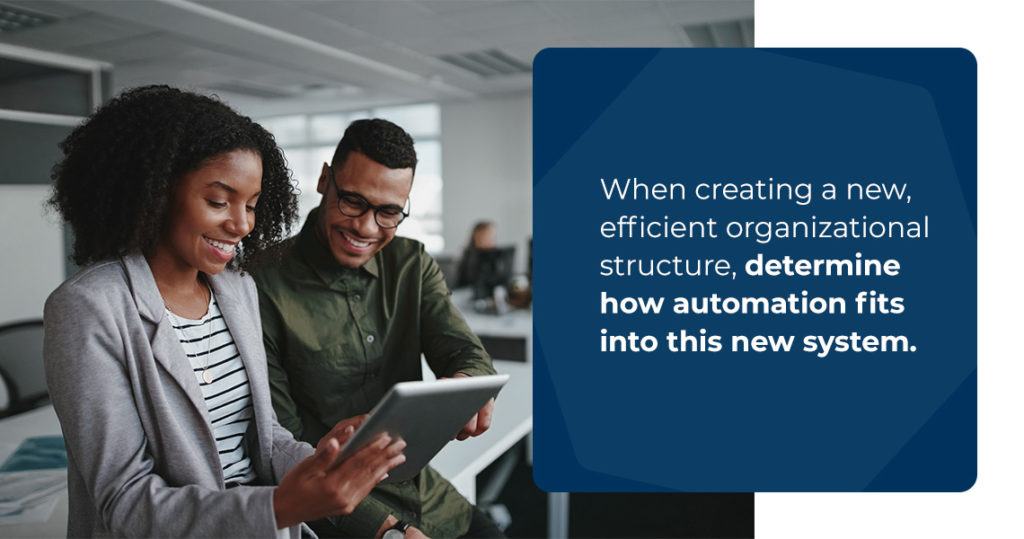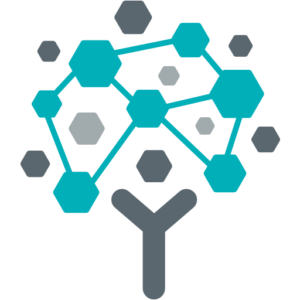Reading Time: 5 minutes
When you work for a nonprofit organization, there are many responsibilities you have to manage. As the end of the year approaches, you’re also likely dealing with numerous projects, fundraisers, and initiatives. Working at optimum efficiency is a top priority, but it can be challenging to meet this goal if you have too many tasks keeping you and your staff behind.
With digital innovation and automation, you can help your team effectively manage these busy times by working smarter, not harder. Instead of dealing with long nights, missed deadlines, and high stress, you and your staff can prioritize and allow automation to relieve some of the burdens of your daily schedule.
1. Automate With Technology
According to a study, staff members spend 20% of their time on repetitive tasks. Throughout the workweek, these manual tasks take up more than an eight-hour workday. Another study notes that one of the biggest concerns for 97% of organizations is being unable to meet deadlines due to manual effort and stress.
If you want to learn how to work smarter, not harder, the first step is to assess your existing process and see how you can speed up your manual tasks with automation. Certain nonprofit solutions make it easier for your organization to provide more efficient service by ensuring your financials are accurate, reliable, and easy to understand. These platforms also help improve budgeting overall and speed up your cash flow.
Reflect on what your team spends most of their day doing and determine which tasks you need to prioritize with automated systems. Nowadays, there are solutions for every important organizational function, including accounting! Not to mention, technology can help you work more efficiently by:
- Reducing labor costs
- Saving time
- Reducing invoicing traffic jams
- Improving compliance
- Minimizing human error
These benefits alone can boost your organization and put you on the path to success. If your accounting team has too many manual tasks on their hands, it may be typical for your organization to see regular errors and extensive downtime for problem-solving. This excess of manual tasks can divert your team’s time and energy away from donors.
Consider how much time you and your team spend daily on repetitive tasks and how often you’ve made it too close to a project deadline. Most likely, a large portion of your accounting team’s role involves mundane administrative tasks, such as payroll and data entry. Even the most detail-oriented person is capable of miscalculating and making an error, which can create costly issues.
With the right solution, you can automate tedious work and streamline tasks, unlock more opportunities, and focus on more value-driven aspects of your mission. When researching accounting platforms, be sure to determine which one caters to your organization’s needs and how user-friendly the program is to maximize your investment.
2. Find a Structure

If you want to learn how to be more efficient at work, consider the type of structure you can create for your accounting team so they can execute more high-quality work efficiently. No matter what type of work your organization does, it’s important to take a step back and reflect on how your team structures your workdays. Here are some important questions to ask yourself:
- When is your team the most productive?
- How many meetings do you have planned for the month?
- Are you unnecessarily spreading out tasks you can consolidate?
- If you’re adding more tasks to your plate, are you subtracting one?
- If you were to lose a team member in the next week, are you prepared to handle their role?
When creating a new, efficient organizational structure, determine how automation fits into this new system. List the number of tasks you can simplify or eliminate entirely with a comprehensive, configurable financial management system. Though every organization has a unique working structure, take some time to ask for feedback from your staff and determine what you can improve.
Upon reflection, you may notice your accounting team has several meetings scheduled throughout the week when one longer meeting may be more efficient and prevent constant disruption from other tasks. Communicate with your accounting team and create a standardized process for your workflows. Provide step-by-step instructions to streamline specific tasks, encourage your team to focus on priorities, and make sure your team feels in control of their responsibilities.
3. Focus on High-Impact Tasks
An effective way to spend your time on more valuable tasks — alongside using automation — is to prioritize the tasks that will have the greatest long-term impact on your organization.
As an administrator, executive, or director on your accounting team, you likely have an ever-growing to-do list. Chances are, you and your nonprofit team often spread yourselves too thin trying to accomplish every single task and end up feeling drained. While multitasking is an efficient way to work, it becomes canceled out when you’re overloaded with too many items you can easily automate.
Instead, focus on the most critical tasks for your organization, job performance, and company success. For example, which tasks may directly impact your donors? As a nonprofit organization, you know how vital donors are to your mission, so eliminating responsibilities from your plate that aren’t of the utmost concern can help you narrow your focus on engaging with donors.
A critical component of prioritization is delegation. However, not many leaders get it quite right. The “80/20 Rule” indicates nearly 80% of your organization’s results come from 20% of your efforts. Knowing how to delegate properly is an essential skill because it can help you differentiate between the repetitive and tedious everyday tasks that can benefit from automation as opposed to the tasks your team can handle instead.
This transition can be a bit challenging, but the ability to delegate makes you and your team more productive and enhance your time management skills in the long run. It promotes a sense of personal accountability and responsibility within your team members, giving them opportunities to take on new roles and learn new skills. As your organization grows, you can’t personally manage every initiative yourself, so it’s important to delegate thoughtful, high-impact tasks to your staff.
By doing so, you lay the foundation for other leaders to emerge within your nonprofit and invest in the success of your organization. Simply by implementing an automated platform for your everyday tasks, you can reduce your team members’ to-do lists and give them more opportunities to grow in your organization.
Start Working Smarter With a Free Demo of MIP Fund Accounting® Today
Learning how to prioritize, delegate, and use automated platforms effectively can help your organization achieve its mission — no matter what your schedule looks like. If you want to implement automation in your nonprofit, consider what MIP offers. Our accounting software is specifically designed to help organizations like yours manage complex accounting and make better-informed decisions.
At MIP, we know how valuable technology can be for reducing manual processes and speeding up many aspects of your role, such as managing employees, accounting, and reporting. Our secure, scalable solutions can optimize your workflows and meet your unique needs. If you’re ready to start working smarter, not harder, request a free demo today.

Share this post





